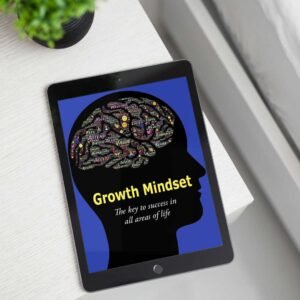In the ever-evolving landscape of investing, the principles and strategies of Warren Buffett and Charlie Munger have stood the test of time, offering invaluable insights into the world of value investing and ethical business practices.
This article delves into the wisdom behind Berkshire Hathaway’s unparalleled success, exploring how lessons learned from two of the most successful investors in history can be applied to build lasting wealth and make principled investment decisions.
Warren Buffett and Charlie Munger are two of the most successful investors in the history of the stock market. Their company, Berkshire Hathaway, has delivered unparalleled results over the past decades. The methodologies and philosophies of Buffett and Munger have been encapsulated in numerous texts, including “University of Berkshire Hathaway” by Daniel Pecaut and Corey Wrenn, and “Poor Charlie’s Almanack,” a collection of speeches and talks by Charlie Munger himself. These books offer profound insights into not just investing, but also decision making, business, and life. Here are key lessons gained from these influential works.

Core Investing Philosophies: Value and Patience
Value Investing
At the heart of both Buffett’s and Munger’s principles is a fundamental commitment to value investing. The concept revolves around identifying companies that are underpriced compared to their intrinsic value – an assessment based on the company’s assets, earnings, dividends, and financial sustainability. This methodology implies thorough analysis and the pursuit of investments that provide a significant margin of safety. They focus on companies with durable competitive advantages, or “moats,” that have the ability to withstand economic downturns and maintain profitability over time.
Patience and Long-term Focus
Patience is another cornerstone of their philosophy. Both Berkshire Hathaway legends view market volatility as an opportunity rather than a risk, provided you are investing in fundamentally solid businesses. They advocate for holding stocks over exceedingly long periods, allowing compounding to work its magic. This long-term outlook requires a temperament that remains calm during market swings and maintains focus on a company’s underlying value, rather than market sentiment.
Learning from Mistakes and Continuous Improvement
The Importance of Mistakes
In “Poor Charlie’s Almanack,” Munger frequently emphasizes the importance of learning from mistakes. He and Buffett have made their share of errors throughout their investing careers, and they don’t shy away from discussing them. They believe in analyzing these missteps to understand what went wrong and to avoid repeating the same mistakes in the future.
Lifelong Learning
Continuous improvement, what Munger calls the ‘latticework of mental models,’ is crucial. It involves building a diverse set of conceptual tools drawn from various disciplines – economics, psychology, mathematics, engineering, and more – and applying them to investing and decision making. Both Buffett and Munger are voracious readers, always looking to expand their knowledge and apply it to their business and investment practices.
Rationality and Decision Making
Overcoming Cognitive Biases
One of the key takeaways from Munger’s teachings is the emphasis on rationality. He believes in understanding and overcoming the cognitive biases that often mislead investors. “Poor Charlie’s Almanack” delineates common human misjudgments – including social proof, consistency and commitment, and the influence of liking/loving and hating/disliking tendencies – and underlines the importance of recognizing these biases to make sound decisions.
Frameworks for Better Decisions
Both books share the framework that Buffett and Munger use to make decisions – which involves considering various aspects like the quality of the business, the trustworthiness and competence of its management, financial metrics, and long-term prospects. They stress the necessity of decision-making processes that are disciplined, repeatable, and grounded in reason rather than emotion.

Ethics and Generosity: The Hallmarks of Success
Doing the Right Thing
Ethics stands central to the Berkshire Hathropy ethos. Buffett and Munger advocate fair treatment of shareholders, employees, customers, and the community. They believe in doing the right thing, even when no one is watching, and that the trust engendered by such behavior is essential for long-term success. The attention to ethical decision making has not only defined their professional reputations, but has also profoundly impacted the culture of the companies they invest in.
The Role of Generosity
Generosity is a potent theme in both “University of Berkshire Hathaway” and “Poor Charlie’s Almanack.” Besides their remarkable philanthropic endeavors, Buffett and Munger’s approach to knowledge sharing itself is an act of generosity. They willingly share their wisdom, providing invaluable lessons not only to investors but to anyone in pursuit of a thoughtful and principled approach to their work and life. The necessity of rational and ethical decision making, and the incredible potential of compound knowledge and generosity.
Warren Buffett and Charlie Munger render a masterclass not just in the art of investing but in living lives of intellectual and moral richness. The educational journey through the pages of these books is fruitful ground for anyone who aspires to think more clearly, make better decisions, and achieve success with integrity and purpose. It’s a powerful reminder that the principles guiding our financial investments can, and perhaps should, be the same principles that guide our life’s investments—intellectual, relational, and spiritual.
Disclaimer: The information provided here is for educational purposes only. It does not constitute investment advice or a guarantee of performance. Investing involves risks, including the possible loss of capital. Seek advice from financial and tax professionals tailored to your financial circumstances and goals.















